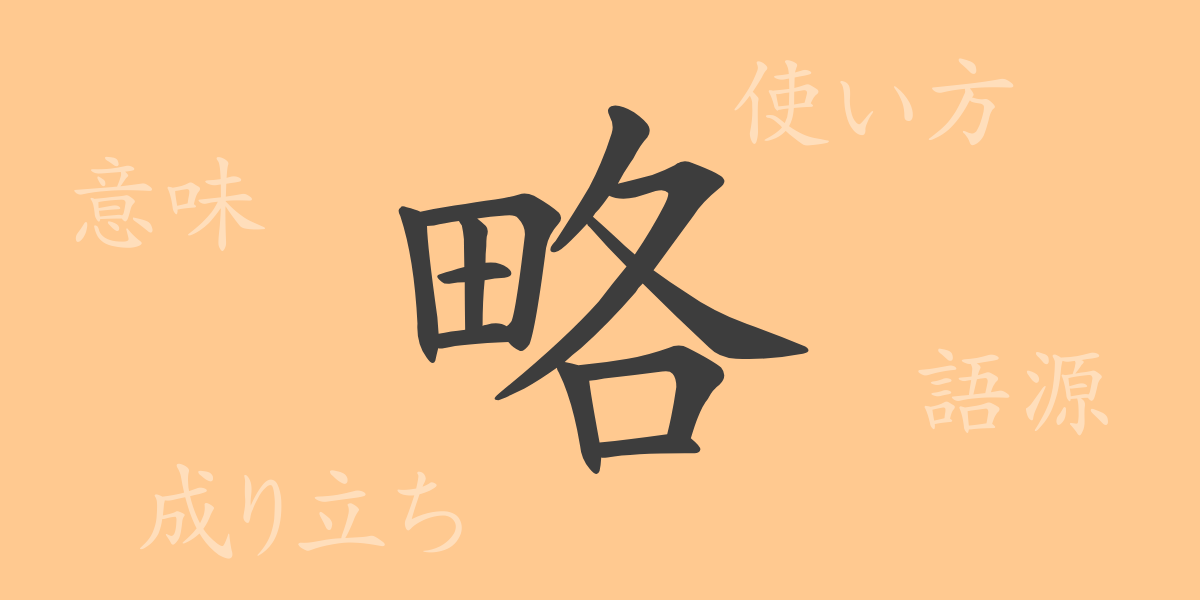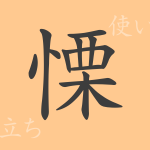Japanese (にほんご, Nihongo) has a vast array of kanji (かんじ, Kanji), each with its unique history and meaning. One of the commonly used kanji in daily life is “略” (りゃく, Ryaku). This versatile character is used in various contexts, from business documents to everyday conversations. In this article, we will uncover the origins, meanings, usage, and even idioms and proverbs associated with “略” (りゃく, Ryaku).
Origins of 略 (りゃく, Ryaku)
The kanji “略” (りゃく, Ryaku) traces its origins back to ancient China. Initially, it was represented by a combination of “田” (た, Ta) and “劦” (きょう, Kyou), symbolizing the act of seizing land during ancient wars. Over time, this meaning evolved to encompass the ideas of abbreviation and summarization.
Meanings and Usage of 略 (りゃく, Ryaku)
In modern Japanese, “略” (りゃく, Ryaku) primarily signifies “to abbreviate,” “to summarize,” and “to plunder.” It is frequently used to shorten sentences or to convey something succinctly. Additionally, in the context of war or competition, it can imply the act of seizing something from an opponent.
Reading, Stroke Count, and Radical of 略 (りゃく, Ryaku)
The basic information for the kanji “略” (りゃく, Ryaku) is as follows:
- Reading: The on’yomi (音読み, On’yomi) is “リャク” (りゃく, Ryaku), and there is no specific kun’yomi (訓読み, Kun’yomi).
- Stroke Count: It consists of 11 strokes.
- Radical: The radical is 田 (た, Ta).
Idioms, Proverbs, and Compounds Using 略 (りゃく, Ryaku)
Here are some idioms, proverbs, and compounds that include “略” (りゃく, Ryaku):
- 省略 (しょうりゃく, Shouryaku): To omit unnecessary parts and shorten.
- 略語 (りゃくご, Ryakugo): An abbreviated form of a word or phrase.
- 略奪 (りゃくだつ, Ryakudatsu): To forcibly take someone else’s property.
- 略取 (りゃくしゅ, Ryakushu): To take something quickly and efficiently.
- 略歴 (りゃくれき, Ryakureki): A brief summary of a person’s history or career.
Summary of 略 (りゃく, Ryaku)
The kanji “略” (りゃく, Ryaku) plays a significant role in our language due to its diverse meanings and applications. From the act of abbreviation to historical instances of plundering, this character exemplifies the richness of the Japanese language. Understanding and effectively using “略” (りゃく, Ryaku) can lead to more efficient communication.

























